Joshua Julien Brouard
15 April 2024 • 6 min read
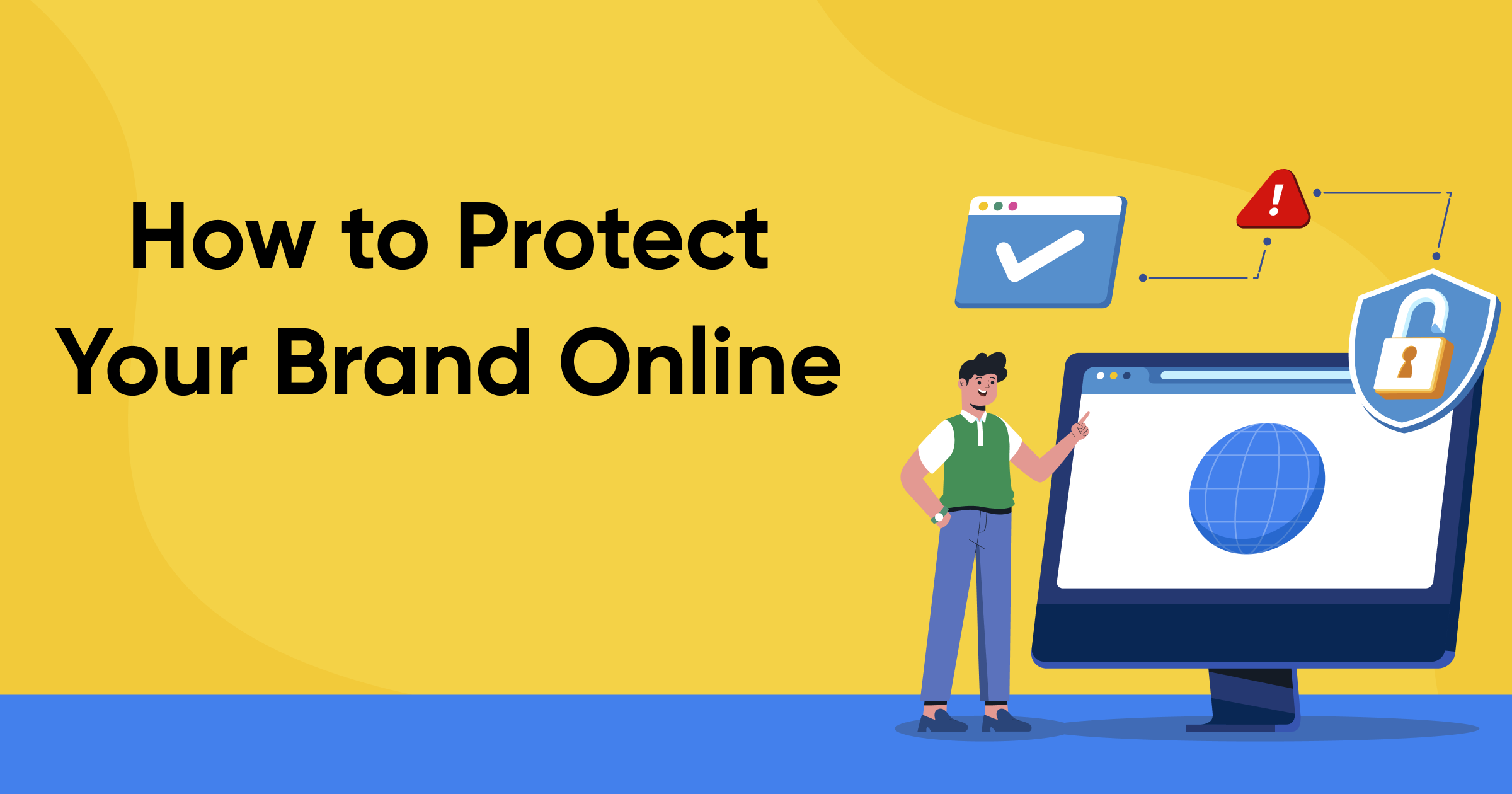
Want to learn how to protect your brand online? We've got you covered.
In this article, I'll cover each element of brand protection online and how you can ensure that your business is secure from day one.
Let's get to it!
You've worked tirelessly to build your brand.
But here's a thought: your brand's reputation can change in a heartbeat in the digital world.
That's why protecting your valuable online brand assets is paramount.
It's not just about safeguarding your reputation —
It's about ensuring the longevity and success of your business.
Bad actors can cause severe damage to your brand by:
So, how do you deal with this?
In this article, I will explore 5 ways you can protect your brand and stay competitive for the long haul.

Want to know how to protect your brand online? Read on:
Your online reputation is your brand's lifeline.
Monitoring what's being said about your brand on your social media platforms, review sites, and forums is essential.
Quick responses to both positive and negative feedback can significantly sway public perception.
And be very careful about how you respond to your customers.
Responding in a hostile manner to a negative review given may only compound the damage it has already caused.
Be professional, be sympathetic to the consumer, and settle fires before they get out of control.
Want to know how to protect your brand and logo?
Well:
This tip is big.
Your logos, slogans, and unique product designs are your intellectual gold.
Registering copyrights, trademarks, and patents is critical.
It's a legal shield for your intellectual property.
But you're contemplating "how to protect my brand and logo" – that's where intellectual property rights come in.
Intellectual property law is complex, as any of our attorneys will admit.
So, for instance, while some people may tell you that you've already got brand protection through use of your trademark:
That's only part of the story.
Trademark protection through the common law (as it'd be called) only provides partial protection.
While you're protected in the area in which you've used your trademark, it's limited to that.
In addition, it's much more work to prove, in the case of infringement, that you've got common law trademark rights.
Officially protecting your trademark through a licensed attorney will ensure that your brand is protected outside of your area and that you have a host of legal remedies available to you.
Want to protect your intellectual property? Contact one of our attorneys today.
Owning the right domain names is like owning prime real estate on the internet.
It's your address, your identity.
Be proactive in securing variations of your domain to prevent cybersquatting.
Remember, your domain name is often your first impression.
Being able to register your exact brand name will be extremely beneficial in helping establish trust with your customers.
It also significantly enhances your searchability.
Ready to get your domain registered? We can help you with that!
Go to Domainmarkia and get the process started.
Keep an eye on how your brand is depicted online.
(a) Incorrect information, (b) misuse of your brand, or (c) outdated content can harm your brand image.
Regular audits of online content are essential.
It's all about maintaining a pristine, accurate brand image.
Sometimes, this may also mean removing content that may be considered offensive by today's standards.
Your team should be your brand's first line of defense.
Educate them about the importance of brand protection.
This includes understanding intellectual property rights and how to represent the brand consistently and positively online.
And remember —
The best way to not have to do damage control for online content or deal with negative brand reviews is:
Ensure that your employees know how to conduct themselves and what to say to preserve your brand image.

A compelling example of a business suffering from failing to protect its trademark is the legal battle faced by the restaurant originally named "Louis Vuitton Dak" in South Korea.
The restaurant had mirrored its name and branding too closely to the luxury fashion brand Louis Vuitton, leading to a trademark infringement lawsuit.
(Louis Vuitton had to protect its brand reputation, after all!)
The court ruled in favor of Louis Vuitton, resulting in significant fines for the restaurant, which even after changing its name to a slightly different variation, faced another hefty fine for non-compliance.
This case exemplifies the serious repercussions that can occur when businesses don't adequately safeguard their trademarks.
Failure to actively protect and monitor trademarks can dilute the brand's value and might even result in the cancellation of trademark rights.
As seen in various cases, unauthorized use of a trademark, or using a mark too similar to a well-established one, can confuse consumers and significantly harm the original trademark owner's brand.
Businesses, especially small and mid-size enterprises, must be vigilant in protecting their intellectual property.
Ignoring these rights can lead to legal battles and potential financial ruin if they are found guilty of infringement.
The costs associated with defending against trademark infringement can be substantial and may include lost profits, legal fees, and damages awarded for the infringement.
“Early trademark registration is crucial - the quicker you protect your mark, the sooner you'll have a range of legal defenses at your disposal.” - Derrick Davis, IP Attorney at Trademarkia
Registering a trademark is an essential step in safeguarding your brand's online reputation and brand identity, ensuring that key elements such as logos, slogans, and even unique product designs are legally protected.
Platforms like Trademarkia make this process more accessible and streamlined.
Here's a detailed overview of how you can register a trademark using Trademarkia:
Learn how to use our trademark search engine in the video below:
Trademarkia is more than just a trademark registration service.
We're your partners in brand protection.
From conducting thorough searches to ensure your trademark is unique to handling all the nitty-gritty of the application process, Trademarkia is there every step of the way.
It's about peace of mind, knowing your brand is in capable hands.
The best way to protect a brand is through a combination of proactive measures, such as monitoring online presence, securing intellectual property rights, and ensuring consistent brand representation.
Protecting an online business involves:
Protecting your brand on your social media accounts involves:
To protect your brand image, regularly audit online content for accuracy, maintain a consistent brand voice across all platforms, and quickly address discrepancies or misrepresentations.
If a company steals your idea, consult with a legal expert to explore options like cease and desist letters or legal action, especially if you have intellectual property rights for the idea.
AUTHOR
Joshua J. Brouard has a diverse background. He has studied bachelor of commerce with a major in law, completed SEO and digital marketing certifications, and has years of experience in content marketing. Skilled in a wide range of topics, he's a versatile and knowledgeable writer.
Related Blogs
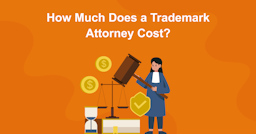
How Much Does a Trademark Attorney Cost?...
07 May 2024 • 6 min read

Is Filing a Trademark Hard? (+ How to Ma...
03 May 2024 • 7 min read
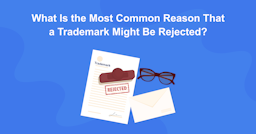
What Is the Most Common Reason That a Tr...
03 May 2024 • 6 min read
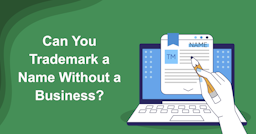
Can You Trademark a Name Without a Busin...
03 May 2024 • 7 min read
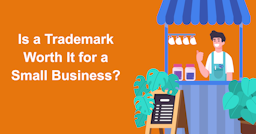
Is a Trademark Worth It for a Small Busi...
30 April 2024 • 7 min read